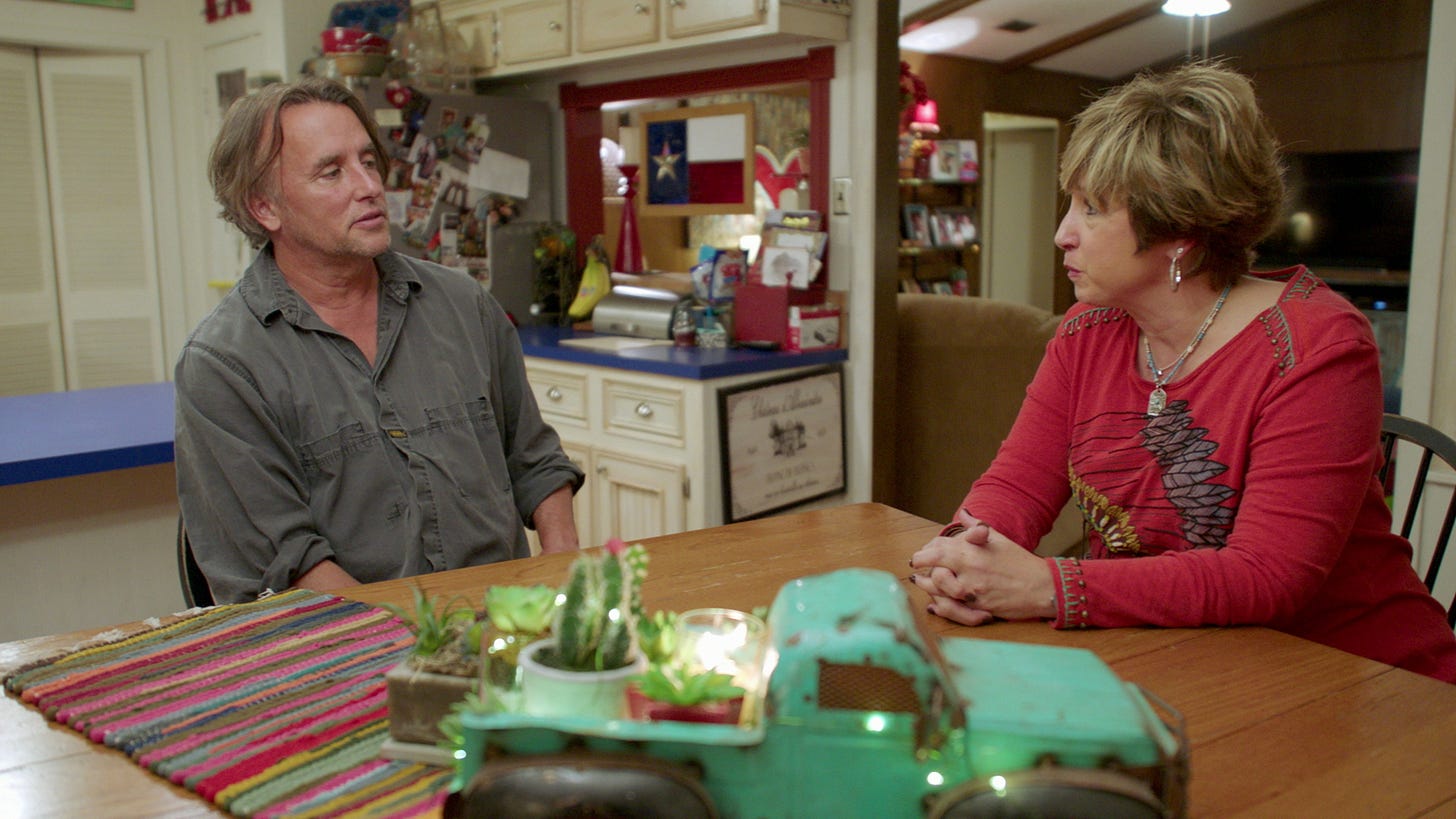In ‘Hometown Prison,’ Richard Linklater shows himself as a natural documentarian
The film, the first part of HBO’s “God Save Texas” project, seamlessly applies Linklater’s familiar sensibility to nonfiction
In his career that has now spanned over 30 years, filmmaker Richard Linklater has made many different kinds of movies, several of which did inventive things with filmmaking form. He made one movie (Slacker) that floated from character to character. He made multiple animated films (Waking Life, A Scanner Darkly, Apollo 10 1/2: A Space Age Childhood), one movie that was shot over 12 years (Boyhood), and he’s currently at work on an adaptation of Merrily We Long Along that’s supposed to take twice as long as that.
But one thing Linklater had never done until now is direct a full-on documentary (EDIT: I had neglected to remember that Linklater did indeed direct a documentary, INNING BY INNING: PORTRAIT OF A COACH, back in 2009. It didn’t get much distribution, nor have I ever seen it, but that was his documentary debut.)
While he’s made some true-crime fiction features (Bernie and the upcoming Hit Man, both based on magazine articles by the same author), Linklater’s first crim-related documentary is Hometown Prison, which debuted on HBO and Max last week. It’s part of a trilogy of new documentaries called God Save Texas, with the other installments directed by Alex Stapleton and Iliana Sosa; all are inspired by the book of the same name by Lawrence Wright.
Hometown Prison is remarkable regarding just how perfect a fit Linklater is as a documentary filmmaker, narrator, and on-camera presence. The doc is set in Huntsville, which is where the director grew up and went to high school; it’s also the home of a Texas state prison that is often ground zero for fights over the death penalty.
Linklater talks on camera about how personal the project is for him. The town is where he went to high school, having experiences that partly inspired Dazed and Confused, one of the most beloved movies about high school ever made; Linklater also shot Everybody Wants Some!!, his “spiritual sequel” to Dazed, nearby. He talks about his parents’ divorce and his mother’s dating life, a significant subject of Boyhood.
He also talks about how his mother’s many former husbands included a prison guard and a prisoner; you may remember the serial stepfathers from Boyhood. It can be tiresome when a documentarian makes himself the center of his film, especially when Michael Moore does it. But Linklater’s not about grandstanding, and his personality doesn’t grate the one Moore’s and Morgan Spurlock’s do.
There are plenty of compelling interviews with those who have spent amounts of time on either side of the prison walls, as well as with the activists who periodically show up to protest the prison’s pending executions.
At the same time, we get the sense that the town's values are very different from Linklater’s instinctual ones; after all, he ended up not sticking around.
Beyond Linklater’s reflections, the film is mainly about how the town relates to the massive prison at its center and also about the politics and ethics of the death penalty, along with related issues like racism and mass incarceration.
In the last four or five years, numerous documentaries have looked at all these things. But what works here is the super-specific setting and Linklater’s on-camera presence. There’s also quite a bit of only-in-Texas color, like the Texas Prison Rodeo, in which the participants were actual prisoners. We also see George W. Bush, in Dubya style, declaring in a presidential debate that “I think we ought to try 14-year-olders as adults.”
Richard Linklater is still going strong as a narrative filmmaker, and I’m excited for audiences to discover Hit Man when it hits Netflix in June. But Home Town Prison indicates that Linklater has a natural talent for nonfiction films, and I’d love to see him explore more.






Across such a diverse portfolio, Linklater always develops a real sense of familiarity and intimacy with his characters - I have no doubt he makes for a terrific documentarian, especially with subject matter so personal to him.